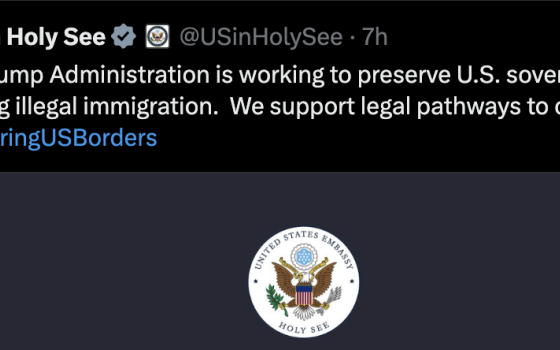WASHINGTON -- U.S. Catholic leaders have joined leaders of other faiths in expressing concern about the early August evictions of Palestinians from East Jerusalem.
In an Aug. 7 letter to Secretary of State Hillary Rodham Clinton, the leaders sought the immediate reversal of the evictions and the restoration of houses to former residents. A U.S. response must go beyond official protests, they wrote in the letter, released by Churches for Middle East Peace, a coalition of 23 Catholic, Protestant and Orthodox national church bodies and organizations.
Club-wielding Israeli riot police evicted two Palestinian families -- more than 50 people -- from their homes in the Arab neighborhood of Sheikh Jarrah Aug. 2, according to The Associated Press. Police later allowed Jewish settlers to move into the homes where the families had lived for more than 50 years.
In their letter, the U.S. religious leaders said the evictions raised significant international political issues because it occurred close to the 1949 armistice line or Green Line, which separates Israel and the Palestinian territories.
"This population substitution is clearly designed to continue efforts to expand Israeli presence and control over Palestinian areas of East Jerusalem," they wrote. "It contradicts terms of the (2002) 'road map' brokered by the United States and agreed to by both Israeli and Palestinian representatives to refrain from activities that could undermine progress toward a peace agreement. It also undercuts U.S. efforts to create an environment for starting talks for a comprehensive peace agreement and is therefore harmful to both the Palestinians' and Israelis' hopes for peace."
The Catholic signers of the letter represented the Conference of Major Superiors of Men, the Maryknoll Office for Global Concerns, the U.S. Conference of Catholic Bishops and the Franciscan Action Network.
Israel took control of East Jerusalem in the 1967 Six-Day War, which pitted Israel against Jordan, Syria and Egypt, but Israeli sovereignty over that part of the city has not been recognized internationally.


